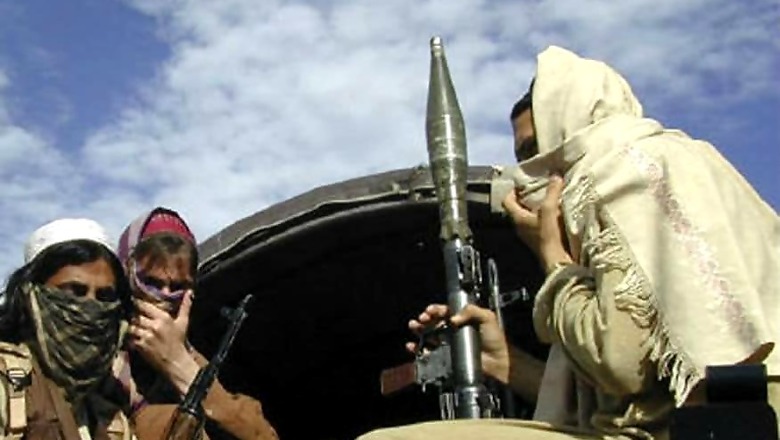
views
Washington: Afghan-oriented militant groups like the Taliban and the Haqqani Network retain freedom of action from inside Pakistani territory, the Pentagon has said, while asserting that the US has been clear in urging Islamabad to deny safe havens to terror outfits.
"Afghan-oriented militant groups, including Taliban and Haqqani Network senior leadership, retain freedom of action from safe havens inside Pakistani territory," the Pentagon said in its six-monthly report to the Congress.
"The United States continues to be clear with Pakistan about steps it should take to improve the security environment and deny safe havens to terrorist and extremist groups," the report said.
Militant groups, including the Taliban and Haqqani senior leadership, retained safe havens inside Pakistani territory and sustained Pakistani efforts to disrupt active Haqqani Network threats were not observed during the reporting period, the Pentagon said in its report ending November 2016.
The Pentagon, in its report running into nearly 100 pages, said the Afghanistan-Pakistan border region remains a sanctuary for various groups.
These include the Taliban, al-Qaeda, AQIS, Haqqani Network, Lashkar-e-Taiba, Tehrik-e-Taliban Pakistan (TTP), ISIL-K, and the Islamic Movement of Uzbekistan.
"This sanctuary and these groups remain a security challenge for both countries and pose a threat to regional stability and security," it said.
Collectively, terrorist and insurgent groups continue to present a formidable challenge to Afghan, the US and coalition forces, the report said.
There is a high concentration of terrorist and extremist organisations operating in Afghanistan and Pakistan, with several known designated organisations operating in the two countries, creating a complex threat environment, the Pentagon said.
Of the groups involved in the Taliban-led insurgency, the Haqqani Network remains the greatest threat to US, coalition and Afghan forces and continues to be a critical enabler of al-Qaeda, it said.
Haqqani Network leader Sirajuddin Haqqani's role as Taliban deputy has solidified Haqqani influence within the Taliban, the Pentagon said.
Sirajuddin Haqqani's position has likely allowed the Haqqani Network to increase its area of operations within Afghanistan and provided the Taliban with additional operational and planning capabilities, it said.
The Pentagon said although al Qaeda's core leadership in the Afghanistan-Pakistan border region has been degraded, elements continue to seek safe haven on both sides of the border to regenerate and conduct attack planning. "The continued development of an al-Qaeda affiliate in the region, al Qaeda in the Indian Subcontinent (AQIS), highlights the dynamic nature of the region's terrorist and militant landscape, posing risks to the mission and to US interests," it said.
















Comments
0 comment